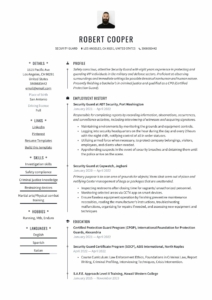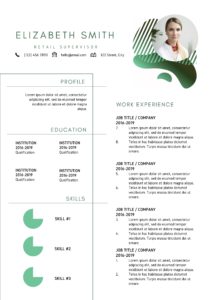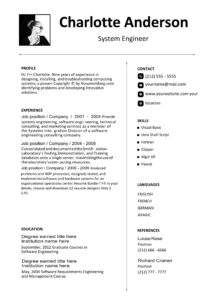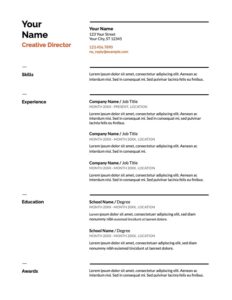
When it comes to interviewing for a job, many candidates feel nervous and unsure of what to say or ask. However, asking the right questions can not only demonstrate your interest in the position, but also give you valuable insight into the company and its culture. In this article, we will discuss the best questions to ask during a job interview to help you stand out as a candidate and make an informed decision about your future employment.
What you can read in this article
15 Best Questions to Ask During an Interview

1. Can you tell me more about the company culture?
Understanding the company culture is essential to determining whether a job is a good fit for you. This question shows that you are interested in not just the job, but also the environment in which you will be working. The interviewer’s response can give you insight into the company’s values, work ethic, and overall atmosphere. If the interviewer struggles to describe the company culture or provides vague answers, this may be a red flag that the company doesn’t have a strong or well-defined culture.
2. What are the expectations for this position?
Knowing what is expected of you in the job is critical to understanding if you can meet those expectations. This question shows that you are focused on delivering value to the company and want to ensure that you are the right candidate for the role. The interviewer’s response can give you insight into the specific duties, responsibilities, and goals of the job. You can also ask about the metrics or KPIs used to measure success in the role.
3. What is the biggest challenge facing the team or department?
This question shows that you are interested in the team’s or department’s success and want to understand the company’s priorities. The interviewer’s response can give you insight into the current challenges facing the team or department, and how you can potentially contribute to overcoming those challenges. This question also shows that you are a problem solver and can think strategically about how to improve the team or department’s performance.
4. Can you describe the career growth opportunities within the company?
Understanding the opportunities for advancement is essential to determining whether a job is a good long-term fit for you. This question shows that you are ambitious and want to develop your skills and career within the company. The interviewer’s response can give you insight into the company’s commitment to employee development, as well as the specific career paths and opportunities available within the company.
Read also: How to Answer “Why are you a great match for this role?”

5. What is the management style of the team or department?
Knowing the management style of the team or department can help you determine whether you will be a good fit for the company culture. This question shows that you are interested in how the team or department is led and managed. The interviewer’s response can give you insight into the leadership style of your potential boss, as well as the communication and feedback mechanisms in place within the team or department.
6. What is the onboarding process like for new employees?
Understanding the onboarding process is essential to getting off to a strong start in your new job. This question shows that you are proactive and want to understand how the company supports new employees. The interviewer’s response can give you insight into the training and support provided during the onboarding process, as well as the expectations for the first few months on the job.
7. What is the company’s policy on work-life balance?
Maintaining a healthy work-life balance is essential to avoiding burnout and achieving job satisfaction. This question shows that you are interested in maintaining a healthy balance between your work and personal life. The interviewer’s response can give you insight into the company’s approach to work-life balance, as well as the specific policies and benefits in place to support employees in achieving that balance.
8. Can you describe the company’s approach to diversity, equity, and inclusion?
Understanding the company’s approach to diversity, equity, and inclusion is essential to ensuring that you will be working in an inclusive and supportive
9. How would you describe the team dynamic?
Understanding how the team interacts with each other and works together is important to knowing whether you would be a good fit. This question shows that you are interested in the team's dynamic and how you would fit into the team. The interviewer's response can give you insight into the team's communication style, collaboration, and potential for conflict resolution.

10. What are the company's long-term goals?
Knowing the company's long-term goals can give you an idea of the company's trajectory and how you can potentially contribute to its growth. This question shows that you are interested in the company's vision and future plans. The interviewer's response can give you insight into the company's priorities, strategy, and potential for expansion.
11. Can you describe the day-to-day responsibilities of this role?
Knowing the specific tasks and responsibilities of the job can help you determine whether it is a good fit for you. This question shows that you are interested in the nitty-gritty details of the job. The interviewer's response can give you insight into the scope of the job, the specific tasks involved, and the level of autonomy and decision-making required.
Tip: Avoid asking questions that can be answered with a simple “yes” or “no”. Instead, try to ask open-ended questions that encourage the interviewer to provide detailed and informative responses.
12. Can you describe the team's approach to feedback and performance evaluations?
Understanding how the team provides feedback and evaluates performance can give you an idea of the company's commitment to employee development and growth. This question shows that you are interested in receiving feedback and growing in your role. The interviewer's response can give you insight into the company's approach to performance evaluations, feedback mechanisms, and opportunities for growth and development.
13. How does the company approach innovation and problem-solving?
Knowing how the company approaches innovation and problem-solving can give you an idea of the company's culture and potential for growth. This question shows that you are interested in creative problem-solving and innovation. The interviewer's response can give you insight into the company's approach to innovation, the level of autonomy and risk-taking encouraged, and the company's openness to new ideas and approaches.

14. Can you describe the company's approach to employee wellness and health benefits?
Knowing the company's approach to employee wellness and health benefits can give you an idea of how the company values its employees' well-being. This question shows that you are interested in maintaining your health and well-being while working at the company. The interviewer's response can give you insight into the company's benefits package, wellness programs, and support for mental health and work-life balance.
15. Can you describe the company's approach to corporate social responsibility?
Knowing the company's approach to corporate social responsibility can give you an idea of the company's values and commitment to making a positive impact on society. This question shows that you are interested in working for a company that aligns with your values. The interviewer's response can give you insight into the company's social responsibility initiatives, environmental practices, and philanthropic efforts.
Questions about Opportunities
During a job interview, it's important to ask questions that demonstrate your interest in growth and opportunity at the company. This can show the interviewer that you're invested in your future with the company and are motivated to learn and progress in your role. Some questions to consider asking include:
- What is the company's approach to employee training and development?
- Are there opportunities to work on different projects or initiatives within the company?
- How does the company measure and recognize employee performance and achievements?
- What types of career paths are available within the company?
- How does the company foster a culture of learning and continuous improvement?
- Are there opportunities for employees to attend industry conferences or events?
- How does the company support employee wellness and work-life balance?
- Can you tell me about the company's diversity and inclusion initiatives?
- What types of resources or tools does the company provide to support employee growth and
development? - How does the company encourage and support employee involvement in community service or volunteer work?
Asking smart questions about the interviewer
Asking questions to the interviewer can help you build rapport with a future colleague. Here are some questions you can ask:
- How long have you been with the company?
- Has your role changed since you started working here?
- What did you do before joining this company?
- Why did you decide to work for this company?
- What do you enjoy most about working here?
- What are some challenges you face in your job?
- What are you most excited about in your job over the next few months?
- Are there any upcoming projects or initiatives that you are particularly interested in?

Questions you should NOT ask during any job interview
Yes, it's important to be mindful of the questions you ask during a job interview to avoid coming across as unprofessional or potentially damaging your chances of getting the job. Here are some questions to avoid asking during a job interview:
- Can you tell me about the salary and benefits for this role? (Wait until later in the interview process or until a job offer is made to discuss compensation)
- How quickly can I be promoted to a higher position? (This question may make you appear overly ambitious or entitled)
- How many days off do I get in a year? (Focus on the job responsibilities and company culture, rather than solely on time off)
- Can you tell me about your personal life and hobbies? (This question may come across as too personal and unrelated to the job)
- What does the company do? (Do your research before the interview and ask more specific questions about the company's products, services, and initiatives)
- Can you tell me about the company's financials? (This question may make you appear nosy or too focused on money rather than the job itself)
- Can I work from home or have a flexible schedule? (Wait until later in the interview process or until a job offer is made to discuss potential work arrangements)
- How many sick days do I get? (Again, focus on the job responsibilities and company culture, rather than solely on sick days)
- Can you guarantee that I will get this job? (This question may make you appear overconfident and entitled)
- What's the least amount of work I can do to keep my job? (This question may make you appear lazy or uninterested in the job)
By avoiding these types of questions, you can present yourself as a professional and serious candidate who is genuinely interested in the job and the company. Remember, the job interview is an opportunity to make a positive impression and demonstrate your qualifications, so stay focused and ask thoughtful, relevant questions.
Happy interviewing!




